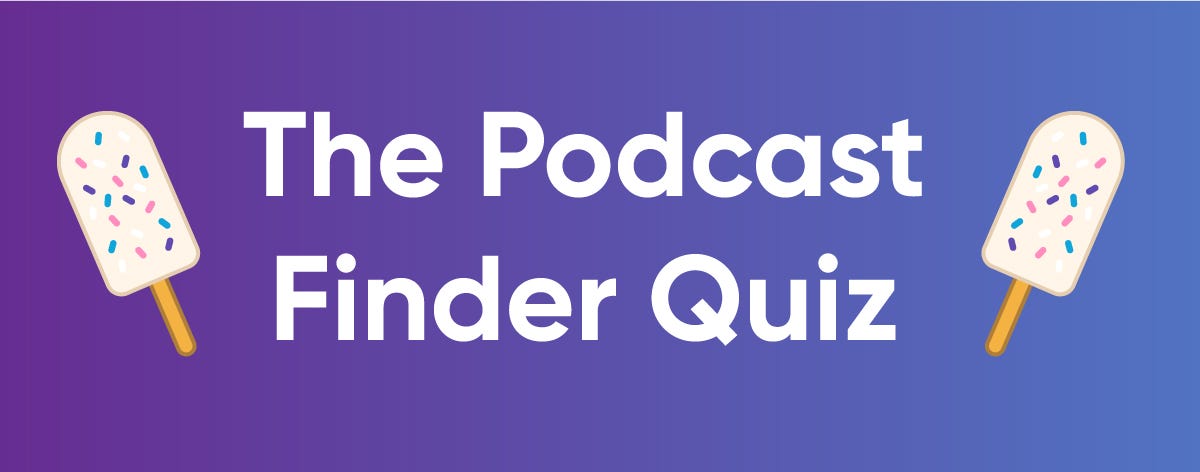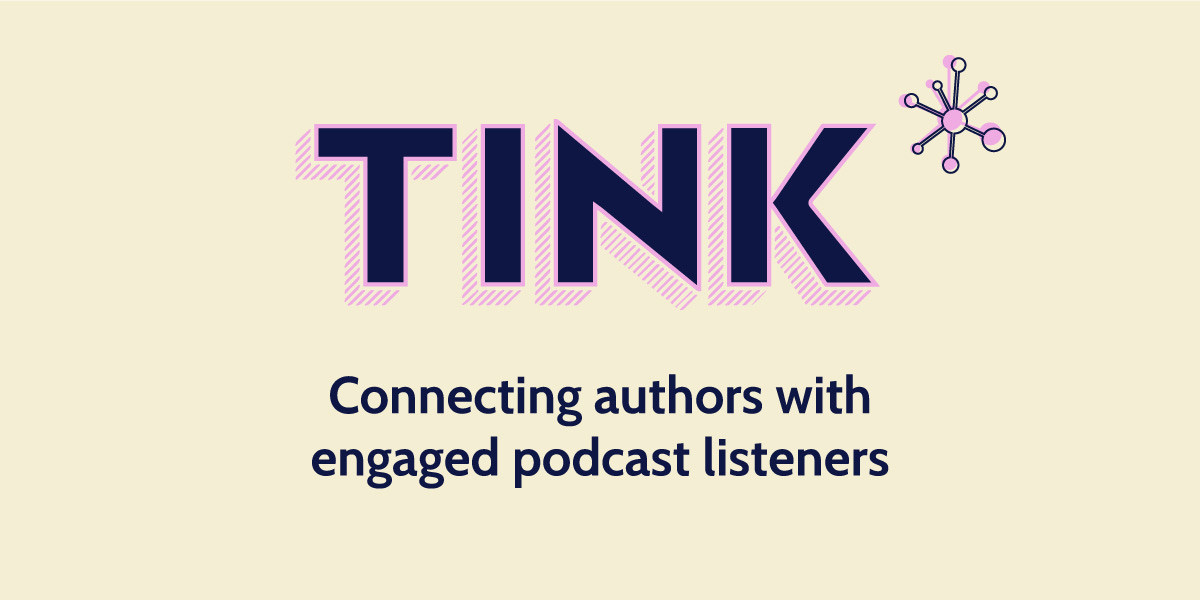❤️Podcast The Newsletter❤️
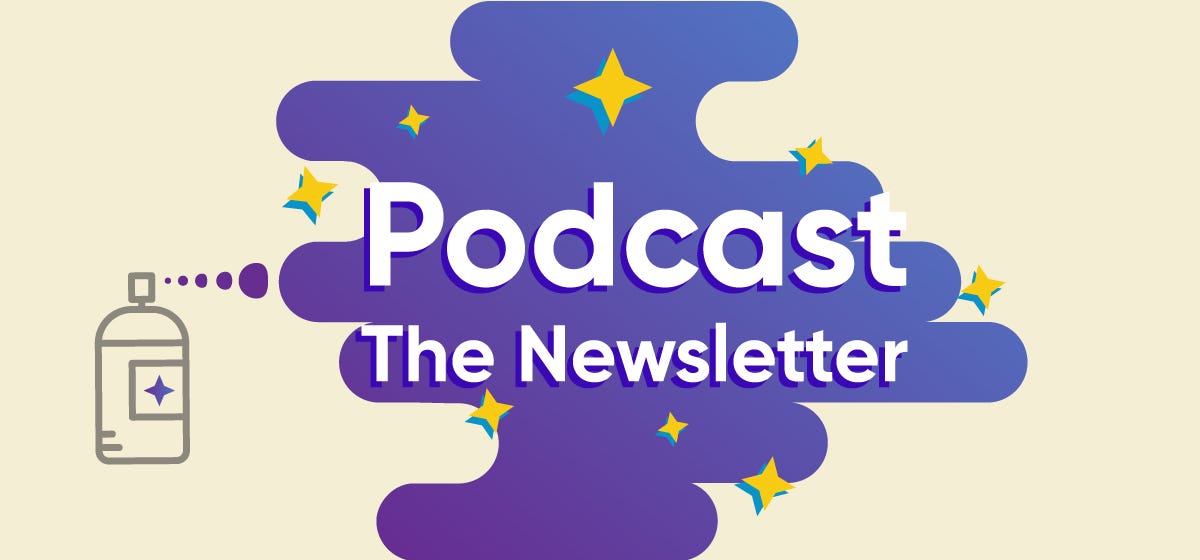
Bonjour.
The funniest little things will have an impact on you. On May 15, 2015, I was listening to Ophira Eisenberg on NPR's Ask Me Another, a live game show that hosts conversations with writers and actors and musicians, and brings in guests from the audience to play a game based on the show's theme. The episode that day had an interview with Mad Men's Matthew Weiner, and the game's focus was on strange TV show final episodes.
The game was underway, and Ophira went on to describe Roseanne as a clue. (The last episode of Roseanne was crazy—it led viewers to question everything they had believed about the previous seasons and left them with a quote from Lawrence of Arabia.) "Roseanne!" The audience member answered correctly. "Did you watch Roseanne?" Ophira asked. "I wasn't allowed to watch it," he said. "It was too...I dunno, working-class." (It comes up around 26:40 on the link above, if you're interested.)
This is a tiny, pretty insignificant thing. But I remember where I was. I was on West 14th street. It was dark, about 5 in the morning. I was going to the gym. And this was the moment I knew I wanted to not just listen to podcasts, but talk about them with everyone and write about them. What other kinds of media offer this kind of strange moment, dying to be unpacked? I remember thinking, "oh we can't not talk about this! He just said that! Did he mean to? What is he thinking WHAT IS HIS LIFE? This means so many things!" And I knew that on every episode of every podcast, there were an infinite amount of other tiny moments happening and they needed to be dissected.
A few weeks later, I started a podcast called PodcastPodcast, a show that talked about podcasts, and asked my friend Eric to be the co-host. Eric was too busy but said yes, anyway. And for three years we had the time of our lives talking about our favorite moments on the podcast airwaves.
PodcastPodcast is on hiatus, and I'm not sure if it will start back up again. On another day I will talk about why I think having a podcast about podcasts was so hard to market and expand, although it seemed the perfect idea to me at the time. (If Lauren Ober couldn't do it, why did I think I could?)
But that's where it all began. That's why I'm writing now, I think. I want to explore all these beautiful, strange, funny, unfiltered moments with all the smart and interesting people I know. It's a job that will never, ever be done. I love hearing about the moments people remember, listening to podcasts. Please tell me yours. I love getting your letters and always respond to them!
xoxo lp
ps If you are pleased with Podcast The Newsletter, please spread the word!
👋q & a & q & a & q & a👋
Last Day's Stephanie Wittels Wachs
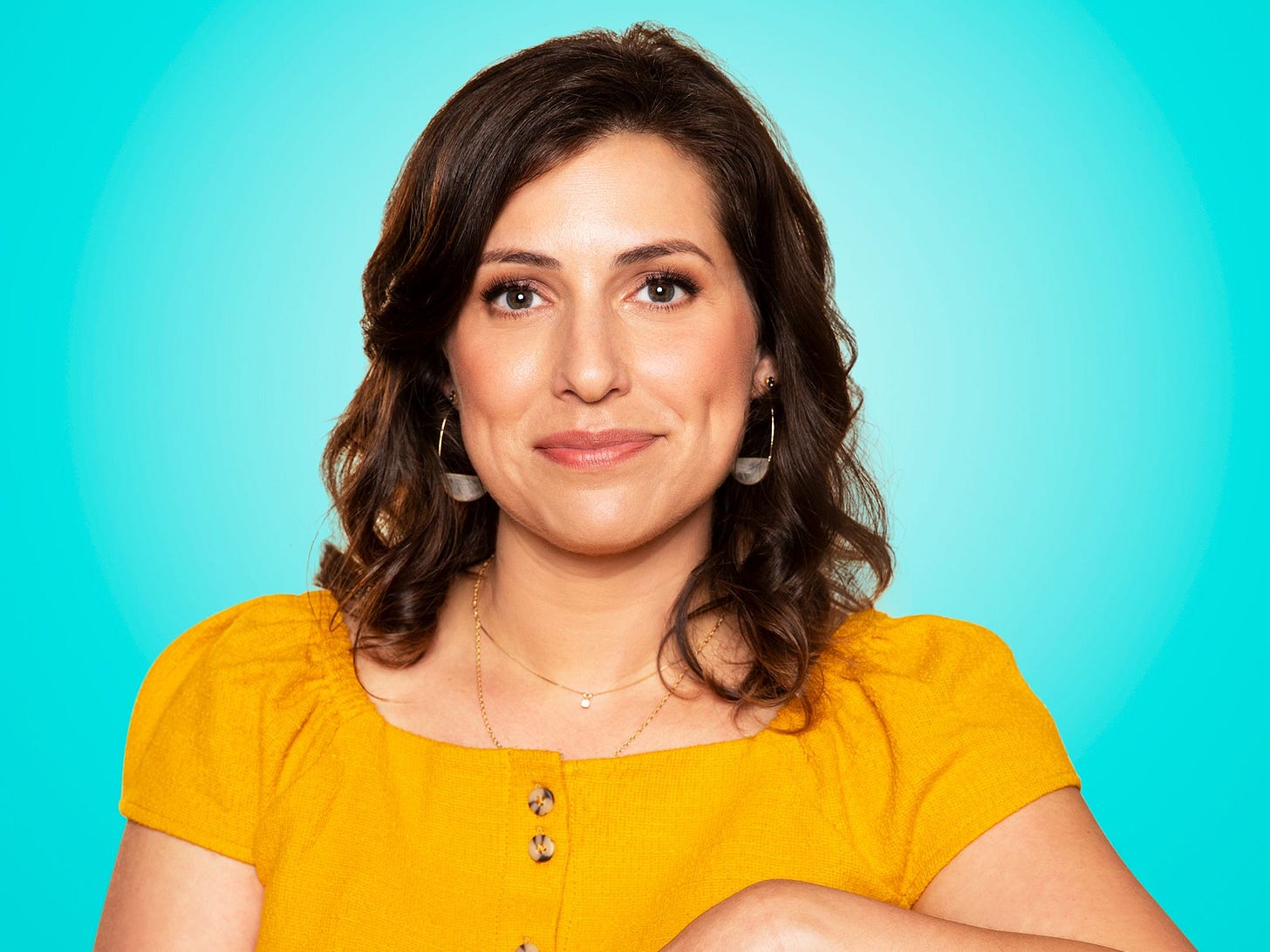
Stephanie Wittels Wachs is Co-founder + CCO of Lemonada Media and host of Last Day. Her book is Everything Is Horrible and Wonderful. Follow her on Twitter here, and follow Lemonada on Twitter here.
Kindly introduce yourself.
I’m Stephanie. Steph, to some. Whatever suits YOU is fine with ME. I am the co-founder and CCO (Chief Creative Officer/Resident Feeler of Feelings) of Lemonada Media. I am the host of our flagship show, Last Day. I teamed up with CEO Jessica Cordova Kramer for the shittiest of reasons. We both lost our little brothers to opioid overdoses. Heroin for Harris, and fentanyl for her brother, Stefano. Jess is the Executive Producer of Pod Save the People and I have a background as a theatre director, voiceover actor, and best-selling author (Everything is Horrible and Wonderful), so we thought - okay let’s do a podcast about the opioid crisis because it’s killing everyone now. Once we started working on that show, we thought, why don’t we launch a (women-run) podcast network and create content and community around all the shit in life that’s hard. Let’s help people get out of bed in the morning. So here we are. Doing that. Weeeee!
Tell us about Last Day.
Last Day is a show about the things that are killing us. Starting with overdose deaths and the opioid crisis, which has take nearly 400,000 lives since 1999, we zoom in on a person’s last day of life, exploring how they got there and how we, as a society, have gotten here. In later seasons, we plan to confront other massive epidemics that are hard to discuss and getting worse every day. Most importantly, while these topics are a real bummer, to say the least, we’ll approach them with humanity, wit and a quest for progress. Our ultimate goal is to save some lives and give people a place to put their big feelings around things that are so physically and emotionally complex, layered, and destructive.
What makes Last Day different than other shows?
I hear about the opioid epidemic constantly. We're all totally inundated by it. Scrolling through Twitter. Listening to NPR. Listening to podcasts. Everyone is touching on it. But we don’t need to touch on it. What we need is an extensive deep dive. Our goal, having lost both our brothers to this nightmare, is to humanize this crisis; to tell tell the story of the opioid epidemic through a first-person narrative lens. It’s so interesting because when we started with this Last Day concept, we knew we were going to have to do something really hard. Whereas my brother Harris Wittels was a public figure, Jess hasn’t told her story yet at all, so we decided we’d kick off the series by telling the story of her brother Stefano. Specifically, his last day. We wanted to try to figure out how he got there and why. And once Jess got on the ground in Boston, where Stefano lived, with our producers, it became clear that we had two elements to this show: the story of Stefano, our main character, and then everything else. And the everything else was two things: 1) the broader policies and social climate we’re in that allows for more people to die of overdoses than car accidents (this is a FACT) and 2) Us. We’re part of the story. So it’s unique in that sense. We’ve created an arc that allows people to know us, me as a host who has been caught up in this crisis through my brother Harris, Jess as the executive producer whose brother also died the same way and who is the focus of the show, and then the broader context. It moves past the numbers. It helps people understand these mind-numbing statistics in human, emotional way, and that's gripping. In the latter part of the season, we will be doing town hall style live shows, where we go into communities, talk to local leaders and folks with boots on the ground there, hear from audience members about their personal experiences with opioids, and ultimately, try to get on the same page across the country about what IS working. We will also be doing one-off episodes in the /spring where we tell other last day stories. Our goal is to build community and save lives. And we truly believe that the first step is to decrease shame and stigma and increase empathy. What better way to do so than to literally tell our own stories?
Was working on Last Day ever a spiritual bummer for you? How will you handle serious topics without making people feel too despondent?
Shockingly, no. It’s actually been incredibly inspiring and uplifting to discover that there ARE things that work. My brother passed away almost 5 years ago, and prior to his death, we were on this horrible rehab/relapse roller coaster, and as a loved one, I just felt so utterly helpless. I didn’t know what I should be doing to support him or how to meaningfully help him in his recovery, or remission. (PS: Doing this show I’ve learned lots about HOW we talk about the disease of addiction and that “remission” is a far less loaded word to use than “recovery.” It really reframes the issue as being a medical one and not an issue of will-power or moral failing.) I would have given anything when Harris was still alive to have a resource like Last Day to listen to, to feel that sense of community and support, and to hear from people on the front lines who have valuable knowledge and experience to impart. If anything, this show has given me a lot of hope. As far as handling serious topics without making people feel too despondent…I am me! I make jokes. I keep it human. I keep it casual. I say fuck a lot. So I think it’s relatable. Sure, it can — and obviously will — be a bummer. But this stuff is part of life. Not talking about it is no longer an option.
What was the moment when you realized you wanted to do Last Day?
When Jess shared her idea for a podcast about the opioid crisis, I honestly wasn’t sure if I wanted to do it. I was kinda opioided out. I didn't want to think about it anymore or focus on it day and night. But I distinctly remember when my son Harry was 4 or 5 months old, I saw a headline that said opioids are now killing more people than car accidents and I was like, okay cool. I’m in. I emailed Jess that moment. “Subject: Update. Body: I hate the world right now, and I'm ready to do something/anything to change it. So count me in.”
💎BTW:💎
🎙️I have a suggestion for you. When the weather gets a little fall-y, put on a cozy coat, hit the streets with a cup of tea, and turn on the Cucurbitology episode of Ologies (pumpkins) and walk around. I never would have imagined that I would so much enjoy so much information about pumpkins (did you know they are technically berries?) and the guest, Anne Copeland, is a delightful, whip-smart 80-year-old woman who makes me feel warm and cozy and says adorable old-timey things. She makes me feel like the world is a good place. AS YOU ARE WELL AWARE I love people who love things. And Anne. Loves. Pumpkins.
🎙️Man, if you are reading this newsletter and you have not listened to the first episode of Startup, stop what you are doing and go listen to it. The new season gives us a peek behind the Gimlet curtain, ugly parts and all. The first episode is called Our Company Has Problems, and talks about the struggles Alex and Matt faced—was the kind of expensive content Gimelt was making what people wanted? Could the business model align with the company's creative goals? Would Alex and Matt get divorced? Would the Spotify deal save the ship from sinking? If you've been a Gimlet listener you will feel like you are part of the story. The relationship between Alex and Matt reminds me of the one between my business partner Kate, and me. Kate is very business-minded and thinking about strategy, and I am obsessed with story. I am going to make her listen to this so we don't end up on the brink of a nasty divorce. At one point, Matt is asked "what's the worst thing you ever thought about Alex?" The answer: "I'm not sure I want to say." (But he says.)
🎙️On the I'm a Podcast Librarian episode of Weird Work, Ma'ayan Plaut (who I just found out I will get to meet when she comes to NYC this month! I'm so excited! What should I wear to impress her?) talks about having my dream job, being a podcast librarian for RadioPublic. If you want to learn about discoverability, shows you've never dreamed of, and the perfect speed to listen to shows, listen five times, like I did.
🎙️Blumhouse is getting in on the podcast action with iHeartMedia...they're partnering to produce a series of fictional podcasts for potential film and television development! First up, The Mantawauk Caves, which will follow three boys who enter a cave in the Appalachian Mountains. SPOILER ALERT only one makes it out alive. To the people who have been saying for years that fiction podcasts are about to have their moment, YOUR TIME HAS COME.
🎙️I listened to The Colored Girl Beautiful and am entranced by both the idea and the presentation. Host Aseloka Smith takes the listener through her own experience reading Emma Azalia Hackley’s 1916 book, The Colored Girl Beautiful, an advice book that features advice on love, personal appearance, marriage, work, and motherhood, and was intended to help Black Women make it in America. In the first episode, How to Be a Beautiful Colored Girl, Aseloka talks about how the book’s messages, like urging Black Women to be quiet, struck her when she first read them, and how they formed who she is today. Unearthing an advice book from another time and creating a podcast about your experience reading it, with other Black Women, is an advice podcast I have not yet seen.
🎙️Am I the last person to discover Hi-Phi Nation, Slate's philosophy podcast that turns stories into ideas? The stories are about everyday life, but weave in elements that explore law, science, popular culture, and strange corners of human experiences that raise thought-provoking questions about things like justice, knowledge, the self, morality, and existence, with the help of academics and philosophers. The sound and artwork are beautiful. The YOLO Apologies episode was a challenge—could the host collect YOLO stories that prove that living twice, or an infinite number of times, make a difference to the value we place on adventure and risk-taking? I also enjoyed this episode about Uncivil Disobedience, which addressed vegan and animal liberation activism.
🎙️Odd Ball is a true-crime podcast where nobody dies and you don't have to feel gross listening to it. It's the story of Gerri Betz and her son Terry, who, in 1974 found a metal sphere in their yard in Jacksonville, Florida. Strange got stranger when the ball started vibrating and rolling around on its own. AND STRANGER when the Navy and nationally-renowned UFO scientists took interest. Host Lindsey Kilbride wants to find out why. (Without much help from Gerri, who won't talk about the ball HMMMMM.) I get the feeling there are going to be a lot of unexpected twists and turns.
🎙️Awhile ago, Kearning Cultures asked listeners to help them think of good episode ideas, and they received a lot of feedback. They went with a fun suggestion, a Baklava challenge. Hosts Heba, Alex, and Dana went off on their own to produce their own mini-story on Baklava. Each one is great. Only one could be the winner. I don't want to spoil it for you. Listen and then look on their Instagram to find out. But the story that won was beautiful and funny. The one about the Guinness Book of World Records was enjoyable, but in my opinion, Alex cheated to make it. (Come fight me, coward, if you disagree.)
🎙️The Shelf-Care Podcast (my project with my partner Kate Hutchison) launched last week. I am really proud of episode two, which comes out on Wednesday. Subscribe here! Sign up for our newsletter here!
🎙️Rachel Steinman is working on a memoir she started 24 years after her grandfather jumped from his Beverly Hills high rise. She discovered his unfinished memoir that was full of dark and salacious family secrets. She ended up writing her own story, finding parallels between her life in his, in hopes of cutting the line of five generations of mental illness resulting in four suicides. She hopes to avoid passing on the generational trauma to her daughters with her book and her podcast, Dear Family, a show that interviews people about mental illness in a distinct way. I used to work with Zack McDermott (author of Gorilla and the Bird, a heart-wrenching memoir about Zack's bipolar disorder and his mom that's been picked up by HBO for a limited series) and I thought I had heard or read everything about him in interviews. But Rachel asked new questions that gave Zack's story a very different treatment. Listen to Zack on This American Life. And listen to his Dear Family episode here.
🎙️One of my favorite songs of all time is Kodak Black and XXXTentacion's Roll In Peace. I listen to it practically every day and have it memorized. But my husband has always hated it and refused to listen to it with me. When I would ask why, he would just look sad and say, "I don't like XXXTentacion, he's a bad guy." So I had a feeling XXXTentacion was awful and didn't want to know the details. It was like a kid knowing in her gut there was no Santa but not wanting to admit it for fear it would put an end to her presents. I turned on the Disgraceland episode about XXXTentacion with trepidation, but I wanted to face my fears. As it turns out, XXXTentacion is pure evil. The Disgraceland episode is jaw-dropping. The story that unfolds reveals that XXXTentacion was an abusive kidnapper and criminal who stabbed people, completely sick in the head. I don't always listen to Disgraceland but enjoyed the storytelling style and I was on the edge of my seat the whole time. The episode paints the portrait of a kid who grew up in violence and didn't know any other way, but it wasn't sympathetic to him. I don't think I can listen to Roll In Peace anymore. Can I? When the stuff came out about Michael Jackson and R. Kelly, it was easy for me to dismiss their music. But this is hard for me. It's one of my favorite songs. I think I'll listen to it one more time, but I won't feel good about it. This led me to listen to other episodes about N.W.A and Cardi B. I have heard people say Disgraceland doesn't offer the best reporting (so really, what's the point?) but I am addicted to the host's voice and the show's style. If you haven't listened to Roll in Peace, listen to it once and then never again. RIP Roll in Peace.
🎙️Lemonada's second show is coming—As Me with Sinéad! The show will attempt to learn about empathy by listening to the stories of others. Academic, TED alum, and advocate Sinéad Burke leads candid conversations with diverse, notable guests who explain what it’s like to be them. Join the As Me with Sinéad community from your phone here.
👻THE SPOOKIES👻
🎙️I was late to discover Carrier ("What happens when a truck driver picks up a loaded trailer, but has no idea what’s really inside?") Narrative podcasts in general are somewhat new to me, and Carrier is far from anything I've listened to before. The beginning warns people that it's not a podcast or audiobook, but "a dimensional experience set in the unseen realms to your left and your right and all that liners between," and that the listener should use caution during their journey, listen carefully, and use headphones. The story and acting are good (the voice is Tony, Grammy, and Emmy award winner Cynthia Erivo,) but it's the sound that took me to another universe. I was listening walking at night and I was seriously terrified. I'm on episode four and cannot wait to hear what happens next. I wish I had binged this one. Maybe I'll start all over again.
🎙️I mentioned in an earlier issue that the most scared I've ever been listening to a podcast was with Spooked's The Thin Place. (It's from Snapped Judgment.) But someone recommended I try Ghosts in the Burbs, and I have a new answer to the question. It's purely a ghost story podcast, told by a single narrator. Kind of like if your camp counselor was trying to scare the shit out of you at a campfire. All of the stories take place in Wellesley, Massachusetts. The first episode offered me absolutely no closure and almost made me pee my pants. I am lucky because there are a lot of episodes in the library (but the show is ending, or has ended.) If you're looking for spooky content, go here.
🎙️Beyond is back! Mike Kelton's funny, ghosty podcast is one that is silly, scary, and very personal to Mike. Particularly the new season, which promises to be a search for Mike's guardian angel. Mike weaves in religion (honestly, he admits he is the opposite of a religion scholar) with his own eerie guardian angel story.
🎙️In Ma'ayan's Weird Work I Am a Podcast Librarian episode, Ma'ayan recommended Kalila Stormfire's Economical Magick Services, a fantasy audio drama that introduces us to Kalila Stormfire and her supernatural business that offers a broad range of supernatural ailments and remedies. Someone has been posting bad reviews and persuading customers to cancel appointments. I'm in love with the story and production. This podcast is written, produced, and performed by Lisette Alvarez.
🎙️I've been bingeing old episodes of Witch Hunt Podcast, which has been defunct for awhile, but nevertheless is enjoyable, especially this time of year. Witch Hunt explores history's most infamous witch hunts (literal and metaphorical) and the history of scapegoating. The show begins examining the Salem Witch Trials and moves onto the Great Satanic Panic of the 1980's and 90's. Host Nancy Mades-Byrd has lived in Salem, Massachusetts, has been obsessed with the trials, and gives tours in Salem about the witch trials. Compared to European witch hunts, Nancy says, the Salem witch hunts were tiny. But for some reason, there is a universal fascination about what happened in Salem. The podcast's writing is really nice, it pulls the listener through the story nicely, and I learn a lot while listening. It's important today, because as Nancy points out, when a society turns on innocent people, Salem is the reason we call it a witch hunt.
🎙️Just a reminder to listen to my friend Emily's podcast, Ghost Stories with Comedians. It's a limited series, the stories are good, and it's really funny.
🎙️To prove to you I have other interests besides podcasts, I point you to other things I love: this Instagram account, and this one. (Both were recommendations on The Waves.) I am reading Adèle, by Leila Slimani and I can't stop turning the pages. I've been listening to Stop Snitchin by YG and DaBaby on repeat. My favorite actress is Bryce Dallas Howard. (I will not be taking questions at this time.)
🎙️I love you!
💎If you binge one thing this week...💎
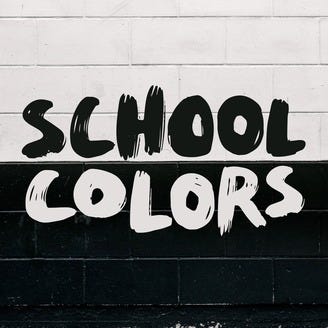
School Colors, a narrative documentary podcast from Brooklyn Deep, explores how race, class, and power shape American cities and schools. Over the course of eight episodes, it follows generations of parents and educators fighting for their children and their community in Central Brooklyn.
Hosts Mark Griffith (who runs the black-led organizing group Brooklyn Movement Center) and Max Freedman (journalist and educator) both have deep ties to Central Brooklyn. Mark is the grandson of Jamaican-born immigrants who settled in Crown Heights, and Max's grandfather was a Ukranian Jewish immigrant who lived in Brownsville.
School Colors is like a people's history of Brooklyn, essential and engaging to listen to. Mark and Max do a great job highlighting conflict from all sides. There's also original music. The production is fantastic.
Listen here.
I talked to Mark about School Colors.
Why did you start School Colors?
We started this podcast because we felt that there were so many conversations about race and class happening in NYC and throughout the country right now, and so many power struggles happening among parents and public education stakeholders. We believed all of this needed to be put in a broader historical context of self-determination. It was also obvious, in this moment of gentrification, that people were talking past each other and could benefit from hearing their own views and opposing views reflected back on them, in a thoughtful, curated way.
What do you hope it does for people?
More than anything else, we hope it provokes conversations. We hope people think, reflect, and become self aware about so many things like, how we share space with our neighbors; what equity looks like and how we measure educational quality; how we’ve been waging the same power struggles for hundreds of years in this country, while using children as our proxies and schools as our battlegrounds. Ultimately, we want it to lead to better social and education public policy. And we want to entertain you!
Who is it for?
Max and I are avid consumers of podcasts and other narrative vehicles, so on the most universal level, this is for ANYONE who loves great storytelling. Of course, we’re hoping that some folks in particular will have a professional and deeply personal stake in listening to this podcast: Parents and educators, policymakers, neighborhood-level civic activists, historians.
What was the moment you realized School Colors had to happen?
There wasn’t one moment, but a cascade of them. One was watching the drama and irony unfold as a new parent group, identified as mostly white and middle-class led, struggled to have an impact on schools in Bed-Stuy while contending with pushback from Black parents and the local public school establishment. Because Max and I were aware that, historically speaking, Central Brooklyn schools have been ground zero for some of the most important experiments in Black self-determination this nation has ever seen, we recognized immediately that there was a larger, highly complex and nuanced, story here.
Give me an enticing tidbit about one of the episodes that will get my readers to want to hear more!
There are some surprises, like how Max and my own stories, get unexpectedly entangled with the narrative. It also has it’s inspiring, sad and profane moments. Be prepared to cry, be outraged and learn something new, all in one sitting.
What do you want my readers to know about this show?
We produced School Colors as an act of independent journalism, on a minuscule budget, over a span of three years. And yet the production values and the quality of the storytelling is second to none. Listen up!!
Thanks, Mark!
Forbes wrote about Tink! Check it out.
Please tell your friends or share my tweet!


